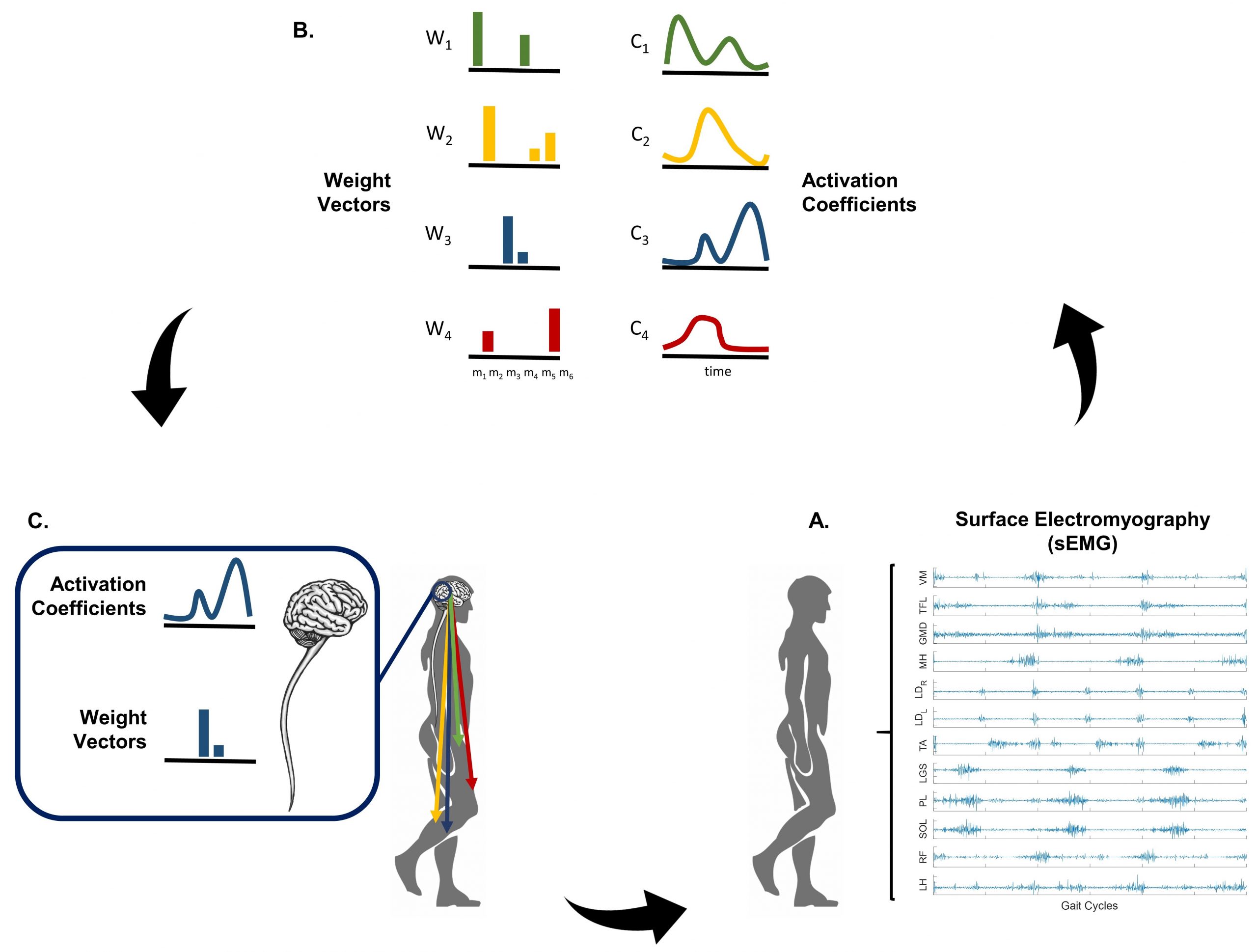
Topic:
Motor tasks are achieved by activating an appropriate set of muscles depending on the task constraints of a specific movement. The central nervous system (CNS) plays the main role in motor control since it activates each muscle choosing both the magnitude and the timing of the activation. The organization of the CNS in controlling and coordinating a large number of muscles during different motor tasks still represents an open issue in the field of motor control. In the last years, the muscle synergy theory was proposed for the assessment of the modular organization of the CNS during different motor tasks. According to this theory, the CNS control a small number of muscles rather than coordinating every single muscle that is involved in a specific motor task. This research line is focused on the assessment of the modular organization of the CNS during postural balance, locomotion or more complex motor tasks, both in physiological and pathological conditions, by means of muscle synergy extraction. This can have important applications in clinics, robotics and sport science.
People:
Collaborators:
Funded project:
Recent publications:
M. Ghislieri, L. Labanca, M. Mosca, L. Bragonzoni, M. Kanflitz & V. Agostini
IEEE Transactions on Neural Systems and Rehabilitation Engineering
10.1109/TNSRE.2023.3328933
Marco Ghislieri, Michele Lanotte, Marco Knaflitz, Laura Rizzi, and Valentina Agostini
Scientific Reports
10.1038/s41598-023-34151-6
M. Ghislieri, M. Knaflitz, L. Labanca, G. Barone, L. Bragonzoni, M. G. Benedetti, and V. Agostini
IEEE Transactions on Neural Systems and Rehabilitation Engineering
10.1109/TNSRE.2020.3030847
M. Ghislieri, V. Agostini, and M. Knaflitz
IEEE Transactions on Neural Systems and Rehabilitation Engineering
10.1109/TNSRE.2020.2965179